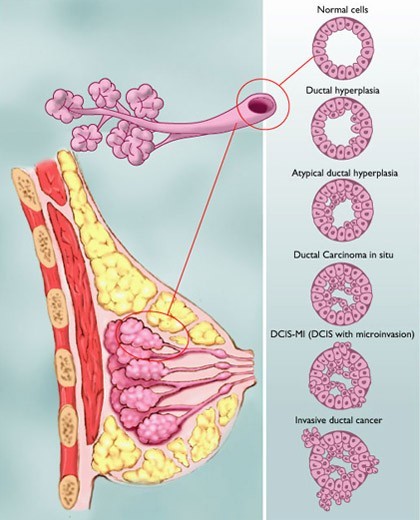
Diagnosed with Cancer? Your two greatest challenges are understanding cancer and understanding possible side effects from chemo and radiation. Knowledge is Power!
Learn about conventional, complementary, and integrative therapies.
Dealing with treatment side effects? Learn about evidence-based therapies to alleviate your symptoms.
Click the orange button to the right to learn more.
- You are here:
- Home »
- Blog »
- side effects ID and prevention »
- DCIS, BC- Shorter Radiation Better than Longer?
DCIS, BC- Shorter Radiation Better than Longer?

They did not just publish that the breast cancer cure rates were the same, but they published very in-depth cosmetic assessments
Breast Cancer can be complicated. The two guiding principles of PeopleBeatingCancer are
- knowledge is power and
- cancer patients, survivors and caregivers must rely on themselves when deciding on cancer therapies.
Oncologists, fellow patients, cancer hospitals, etc. all may have differing priorities and interests and therefore may think and act differently than you, the patient. It is in your best interest to learn as much as you can about your cancer, ask questions and then decide what course of therapy is best for you.
Patients are paying a greater percentage of medical costs. High-deductible health plans are a growing component of the average cancer patient’s health insurance coverage. The cost of your therapies matters.

Lastly, as the NYTimes article linked below points out, local radiation after lumpectomy is recommended to reduce the risks of relapse. Please consider evidence-based, non-toxic breast cancer therapies such as nutrition, supplementation, lifestyle, bone health, etc.
I am a long-term cancer survivor and cancer coach.
DCIS is pre-BC not cancer. Local radiation for the DCIS patient comes with risks and benefits. Learn about evidence-based non-toxic therapies to reduce the risk of full BC.
DCIS and Breast cancer is/are about more than what conventional oncology offers. Scroll down the page, post a question or comment and I will reply to you ASAP.
Thank you,
David Emerson
- Cancer Survivor
- Cancer Coach
- Director PeopleBeatingCancer
For Many With Breast Cancer, Shorter Radiation Treatment Is Just as Effective, Study Finds
“Two-thirds of women who have lumpectomies for breast cancer are getting radiation treatment that lasts nearly twice as long as necessary, a new study reports…
The conventional, longer treatment lasts five to seven weeks. But four rigorous studies and guidelines from a leading radiology society conclude that three to four weeks of more intense radiation is just as effective…
Women overwhelmingly prefer the shorter course of radiation, studies have found. It is also less expensive…
Even though 60 to 75 percent of women with breast cancer have lumpectomies — a total of about 140,000 to 160,000 women — doctors and health insurers say relatively few are getting the shorter treatment because it takes time to change ingrained medical practices, especially when a procedure has been used for decades and the new one offers no additional medical benefit. Its advantages are saving time for patients, and money for the health care system and insurers…
“They did not just publish that the cure rates were the same, but they published very in-depth cosmetic assessments, particularly the British, who took pictures that were graded by blinded observers,” he said.”
What Is Risk After Lumpectomy and No Radiation for DCIS?
“DCIS usually is treated with surgery to remove the cancer — lumpectomy in most cases. After surgery, hormonal therapy may be recommended if the DCIS is hormone-receptor-positive (most are). Radiation therapy also is recommended for many women. Both hormonal therapy and radiation help reduce the risk of the DCIS recurring (coming back), as well as the risk of invasive cancer.
Routine radiation therapy after DCIS was common in the past, but some newer DCIS treatment guidelines say that women at low-risk for recurrence may be able to skip radiation therapy after surgery. Still, the definition of low-risk isn’t always clear.
A study has found that for women diagnosed with DCIS considered to have a low risk of recurrence treated with lumpectomy without radiation, the risk of DCIS recurrence or developing invasive disease in the same breast increased through 12 years of follow-up and didn’t level off…”

